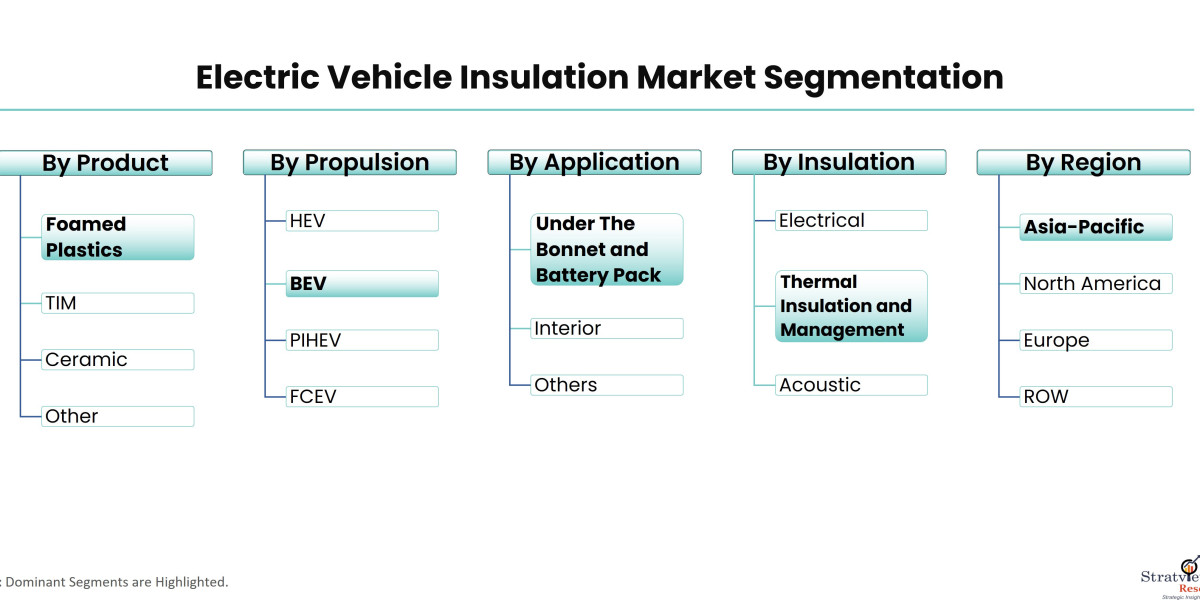The electric vehicle (EV) insulation market is experiencing robust growth, driven by several key factors and marked by a competitive landscape that is evolving rapidly. Insulation materials are critical in electric vehicles for managing thermal conditions, enhancing safety, and improving overall performance. This article provides an analysis of the growth drivers and competitive dynamics shaping the electric vehicle insulation market.
According to Stratview Research, the electric vehicle insulation market was estimated at USD 463.3 million in 2022 and is likely to grow at a CAGR of 11.77% during 2023-2028 to reach USD 911.14 million in 2028.
Growth Drivers
- Rising Adoption of Electric Vehicles
The global shift towards electric vehicles, fueled by environmental regulations and consumer demand for sustainable transportation, is a significant driver of the EV insulation market. As automakers ramp up production to meet growing demand, the need for effective insulation solutions to manage heat, noise, and electromagnetic interference in EVs has intensified. This trend is expected to continue as more countries implement stricter emissions regulations and offer incentives for electric vehicle adoption.
- Technological Advancements in Battery Systems
Advancements in battery technology, including higher energy densities and faster charging capabilities, are driving the need for advanced insulation materials. Modern EV batteries generate substantial heat, requiring effective thermal management to ensure safety and longevity. Innovations in battery design are leading to the development of high-performance insulation materials that can handle extreme temperatures and improve battery efficiency.
- Stringent Safety and Regulatory Standards
Safety is a paramount concern in the automotive industry, particularly for electric vehicles where high voltage and heat are involved. Regulatory bodies have established stringent safety standards for EVs, including requirements for thermal management and fire protection. Compliance with these standards necessitates the use of advanced insulation materials, contributing to market growth.
Competitive Landscape
- Market Players and Innovations
The electric vehicle insulation market is characterized by the presence of several key players, including global insulation material manufacturers and specialized automotive suppliers. Major companies are investing heavily in research and development to innovate and offer advanced insulation solutions that cater to the evolving needs of the EV market. Notable players in the market include 3M Company, BASF SE, Honeywell International Inc., and Saint-Gobain, among others.
- Focus on Sustainability and Lightweight Solutions
Competition in the market is increasingly focused on developing sustainable and lightweight insulation materials. Companies are exploring the use of eco-friendly materials, such as recycled composites and bio-based foams, to align with the broader industry trend towards sustainability. Additionally, lightweight insulation solutions are gaining traction as they contribute to overall vehicle efficiency and range.
- Strategic Partnerships and Collaborations
To enhance their market presence and technological capabilities, key players are forming strategic partnerships and collaborations with automotive manufacturers and technology providers. These alliances enable companies to integrate their insulation solutions into new vehicle models and leverage cutting-edge technologies for improved performance.
Conclusion
The electric vehicle insulation market is poised for significant growth, driven by the increasing adoption of electric vehicles, advancements in battery technology, and stringent safety regulations. The competitive landscape is characterized by innovation, sustainability, and strategic partnerships. As the market continues to evolve, companies that focus on developing advanced, lightweight, and sustainable insulation solutions will be well-positioned to capture growth opportunities and drive the future of electric vehicle technology.



